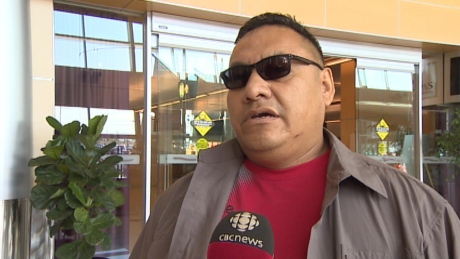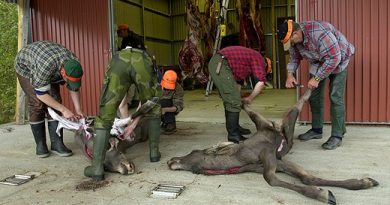Canada: More children sniffing gas says chief of Innu community

Officials in the Innu community of Natuashish, located in the northern region of the Atlantic Canadian province of Newfoundland and Labrador, say they need help to deal with the number of children sniffing gas, and that the situation is getting progressively worse.
Innu Chief Simeon Tshakapesh arrived in St. John’s, the capital city of Newfoundland and Labrador, on Tuesday to make contact with provincial government officials on the troubling issue.
Tshakapesh said he has been spending his nights going through the community and breaking up groups of children sniffing gasoline.
“The situation is getting worse and worse and worse — every day, every night — and it’s been ongoing for the last three years now,” he said.
“And we’ve been trying to work with Health Canada, we’ve also been trying to work with the Child, Youth and Family Services (CYFS), and also the minister of CYFS Charlene Johnson, and it seems like we’re not making any headway at all.”
An emotional Tshakapesh said a photo taken this week of his own nephew sprawled across the hood of a truck with a plastic bag in his hand really struck home.
“My own nephew was on a truck … and to see him like that, it tears me apart,” he said.
“The kids are crying for help,” he said. “These people need help — these young people need help, and they should be helped right in our own territory. We have a treatment centre, we have cabins, we have runways out in the bush, and we can use those — use our own remedies, our culture, our beliefs, our spirituality.”
Tshakapesh said if it was happening in any other part of the country, there would be outrage.
“If this happened in Canada, it would not be allowed to continue to happen, but when aboriginal kids are doing that, it’s allowable. It’s cultural genocide,” he said. “It’s a cultural genocide and a crime against humanity towards aboriginal people.”
Spreading problem
Klaus Muller, the community’s mental health therapist, said gas sniffing is a symptom of a wider problem in Natuashish.
“In the past six months alone, the incidents of the number of children that have been gas sniffing has increased both in numbers and changed demographically. That is to say that the children are younger and there’s a larger population of female children that are gas sniffing,” Muller said.
“And they are luring younger children into gas sniffing by saying things like, ‘If you gas sniff, then you’ll be able to see angels and fairies.’ ”
According to Muller, children as young as seven have started sniffing gas.
“Previous to the last six months, the demographics were mostly teens, equal split gender-wise. And by teens I mean 14 up to 19 or so,” he said.
“What we’re seeing currently is kids as young as seven. But the larger population — the mainstay of that population — is around nine, 10 and 11.”
Muller said the children who sniff gas can be seen more visibly around town and have become bolder, walking through the main areas holding orange or green plastic bags of gas.
“It’s like watching a really bad accident and you know what the conclusion is and you feel impotent — you can’t stop it,” he said.
According to Muller, the parents are either away from the community to deal with their own substance abuse issues, or feel too overwhelmed by the situation.
Child welfare officials said they’re trying to recruit more staff while working with the band council in Natuashish.
Solvent abuse has been a chronic problem in the community since the Mushuau Innu relocated there from Davis Inlet a decade ago.


